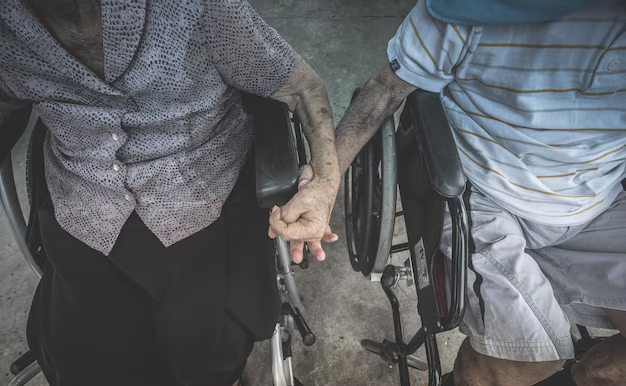Your Guide to Can Parkinson's Kill You
What You Get:
Free Guide
Free, helpful information about Parkinsons FAQ and related Can Parkinson's Kill You topics.
Helpful Information
Get clear and easy-to-understand details about Can Parkinson's Kill You topics and resources.
Personalized Offers
Answer a few optional questions to receive offers or information related to Parkinsons FAQ. The survey is optional and not required to access your free guide.
Understanding the Risks: Can Parkinson's Be Life-Threatening?
Parkinson’s disease is a progressive neurological disorder primarily affecting movement and has profound impacts on a person's quality of life. But when asking the critical question: Can Parkinson’s Kill You?, it's important to understand the nuances.
The Nature of Parkinson's Disease
While Parkinson’s itself isn't directly fatal, complications arising from the disease can be life-threatening. As Parkinson’s progresses, it can lead to severe symptoms, such as difficulty swallowing, choking, and falls that can cause serious injury. Additionally, Parkinson’s patients often experience issues with pneumonia, infections, and other conditions that can become fatal over time.
Indirect Causes of Mortality
The primary concerns for Parkinson’s patients often lie in the indirect causes of mortality connected to the disease:
- Respiratory Complications: Pneumonia, particularly aspiration pneumonia—when food, liquid, or saliva is inhaled into the lungs—is a common complication.
- Falls and Injuries: The risk of accidents increases due to the impaired coordination and balance issues characteristic of Parkinson’s.
- Heart Disease: Cardiovascular problems may be exacerbated by the sedentary lifestyle many patients fall into as physical movement becomes increasingly difficult.
Managing Parkinson's and Its Risks
Effective management of Parkinson’s involves regular consultations with healthcare providers, tailored physical therapy programs, and appropriate medication regimes to manage symptoms and reduce risks. However, the financial burden can be overwhelming for many families.
To alleviate this stress, various government aid programs and financial assistance opportunities are available, ensuring that Parkinson’s patients and their families can secure the necessary resources.
Navigating Financial Assistance
Government Support and Grants: Many regions offer disability benefits for those with Parkinson's, which can help cover medical treatment and daily living expenses. Programs such as Social Security Disability Insurance (SSDI) cater to individuals who cannot work due to their condition.
Debt Relief and Credit Solutions: Handling the financial strain may involve seeking debt relief options. Some credit card companies offer hardship programs that allow for reduced payments or temporary relief periods.
Educational Resources for Caregivers: Those caring for Parkinson’s patients can also benefit from various educational grants and resources. These are designed to provide caregivers with the skills and knowledge needed to manage their loved one's illness effectively.
In Summary
Parkinson's disease brings many challenges, not just for the individuals diagnosed but also for their families. While it is not usually the direct cause of death, its complications can pose significant risks. Fortunately, for those facing the financial pressures of managing this complex illness, there are a variety of aid programs available to help ease the burden.
Financial Assistance and Support Programs
- 🏛 Government Aid: Social Security Disability Insurance (SSDI) for loss of income.
- 📉 Debt Relief: Credit card hardship programs for temporary financial reprieve.
- 🚑 Healthcare Subsidies: Medicaid and Medicare enhancements for treatment costs.
- 🎓 Educational Grants: Training funds for caregivers to improve care quality and sustainability.
By tapping into these resources, individuals and families can better manage both the physical and financial challenges of Parkinson's, enhancing their quality of life even in the face of this debilitating disease.
What You Get:
Free Parkinsons FAQ Guide
Free, helpful information about Can Parkinson's Kill You and related resources.

Helpful Information
Get clear, easy-to-understand details about Can Parkinson's Kill You topics.

Optional Personalized Offers
Answer a few optional questions to see offers or information related to Parkinsons FAQ. Participation is not required to get your free guide.


Discover More
- Are There Environmental Causes Of Parkinsons
- Can Alcohol Cause Parkinson's
- Can Concussions Cause Parkinson's
- Can Concussions Cause Parkinson's Disease
- Can Dogs Get Parkinson's Disease
- Can Dogs Get Parkinsons
- Can Dogs Have Parkinson's
- Can Dogs Have Parkinson's Disease
- Can Females Get Parkinson Disease
- Can Head Trauma Cause Parkinson's
